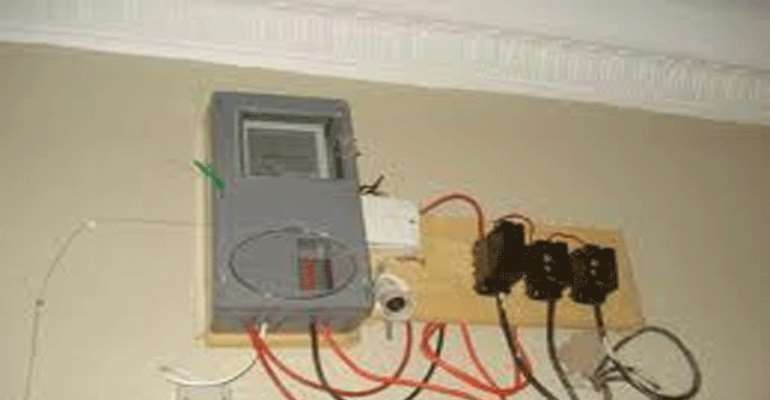Amadi, provide prepaid meters before tariff freeze – Punch

In an apparent response to criticisms of not doing enough to protect the interest of consumers, the Nigerian Electricity Regulatory Commission came up recently with a tariff moratorium initiative, believing it would not only provide the longsuffering consumers with the needed succour, but would, as well, get the nagging critics off its back. Notably, the NERC boss, Sam Amadi, announced a six-month tariff freeze for residential consumers, starting from January 1, 2015. The corollary is that non-residential consumers who are not covered under the scheme will have to pay more within the period under reference.
By his action, it is obvious that Amadi is not satisfied with the services provided by the distribution companies, especially since the power sector was privatised more than a year ago. Indeed, the services seem to have moved from bad to worse since the ownership of the de-coupled units of the old, corrupt and inefficient Power Holding Company of Nigeria fell into private hands. He is therefore using this freeze on tariff increase as an opportunity to remind the DisCos of the need to earn their upward tariff review under the Multi-Year Tariff Order, while also assuaging the anger of the consumers.
In the text of his press briefing, published as an advertorial in one of the national dailies, Amadi's intent was clearly stated when he said, 'The decision to grant this moratorium is a carefully considered one, arrived at after adequate consultations and careful consideration of the imperative to balance the legitimate demand for adequate electricity with the need for fair tariff. The freeze was designed primarily to protect and to promote the interest of the consumers as well as stimulate the operators to serve the consumers better.'
As soothing as this may seem, it however fails to address, once and for all, the most rancorous issue in the electricity distribution chain, which it, ironically, set out to deal with; this is the issue of appropriate tariff for electricity consumers, which can easily be addressed by ensuring the availability of prepaid meters. It is one thing to fix what the regulatory agency believes is the appropriate pricing for electricity and it is another for bills issued to reflect the right amount of electricity consumed.
This brings to the fore, once again, the vexed issue of 'estimated billing.' For as long as the DisCos continue to push out bills based on their whims and caprices, then the benefit of the six-month tariff moratorium will elude many consumers. It does not really matter what NERC may accept as tariff, what the DisCos are losing by not increasing tariff for those who use prepaid meters can be easily recouped by passing the burden back, through estimated billing, to those who do not have, believed to be in the majority.
What NERC has done is like putting the cart before the horse, which has, consequently, wiped off the prospective gains. For the tariff freeze to have its desired effect, the electricity regulatory agency should have ensured that prepaid meters were made available to every consumer, something the DisCos have been deliberately avoiding. By ensuring that a large number of consumers remain without prepaid meters, the DisCos have the carte blanche to impose arbitrary bills on their customers, depending on how much they intend to realise in a particular period.
Unfortunately, NERC has been very lenient with the DisCos on this matter, refusing to take a firm stand when the situation requires one. For instance, while announcing the tariff moratorium, Amadi was quoted as saying, 'The commission is not happy with the level of meter deployment by the DisCos. This is in spite of Credit Advancement Payment Metering.'
This is most disappointing. As a regulator, he was not appointed to express his feelings concerning the performance of the regulated; his duty is to produce regulatory guidelines, which he must enforce, within the bounds of the law. On many occasions, NERC had given deadlines for the provision of prepaid meters, which have been breached without any consequences.
From all indications, it is becoming crystal clear that the people who bought the power firms had neither the financial capacity nor the technical know-how to run Nigeria's electricity. Additional investment needed to improve service delivery has since not been forthcoming. And NERC has also aided in the swindle of the public by refusing to act firmly when the firms refuse to honour deadlines and meet set targets.
According to the Minister of Power, Chinedu Nebo, the Nigerian customer base inherited by the private investors 'showed that more than 50 per cent do not have meters.' If this had been the case, then the provision of meters, as the true basis for establishing rates, should have been the first priority for the DisCos. But they would not do that, as eliminating fraud would translate to running at a loss.
Rather than give consumers a tariff freeze, which is not likely to be enjoyed by the majority of them, NERC should by now be setting fresh, immutable targets for the provision of meters. The DisCos should be given a reasonable time limit to provide every consumer with a meter. Thereafter, efforts should be turned towards improving the quality of supply. Failure to meet these targets, of course, should be followed by proper sanctions, as provided for under the terms of the privatisation law.
